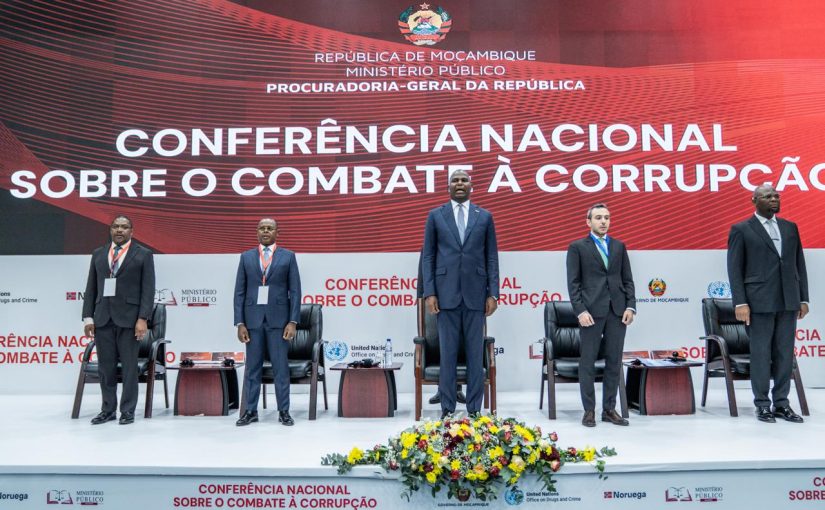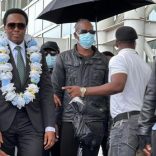EUMAM MOZ receives visit from the United Nations Resident Coordinator
Mozambique’s commitment to fighting the “martyrdom” of corruption is unequivocal – president

Photo: Presidency of the Republic of Mozambique
President of Mozambique Daniel Chapo today warned that the country’s “commitment” to fighting the “martyrdom” of corruption was “unequivocal”, underlining the need to end the “sense of impunity” that reigns in society and in public administration.
“Corruption is a phenomenon that destroys citizens’ trust in institutions, undermines the social fabric, diverts resources that should serve the people, weakens the economy, compromises development and increases social inequalities,” President Chapo said at the opening of the National Conference on Combating Corruption.
The event, called to identify problems in the fight against corruption, is organised by the Attorney General’s Office (PGR) and is taking place over two days in Maputo.
Chapo highlighted that, “in addition to the government’s five-year programme” up to 2029, a strategy for the prevention and fight against corruption in public administration has been approved, an “essential instrument in the prevention and fight against corruption”, which is based on three pillars: prevention, enforcement and cooperation.
In terms of prevention, the Head of State pointed to the “need to cultivate a stance of integrity” in all sectors, which “means educating society in general and young people in particular about the values of ethics, honesty and integrity”.
According to Chapo, it is necessary to ensure “that these principles are present both in public administration and in the private sector, through training for public servants and business operators, focused on transparent management, merit-based recognition and accountability in the performance of duties”, lamenting that there are public servants who “do everything possible to be assigned to certain sectors”, such as Finance or Assets, in order “to gain advantages through acts of corruption”.
In other words, working in a place where “there is no ‘refresco’ (…) is not worth it”, Chapo said.
On the enforcement front, he assured that the “commitment is unequivocal” and that “those who commit acts of corruption will be duly held accountable”, noting that “there is a sense of impunity that reigns” in society, contributing to corruption’s “normalisation”.
“It is imperative that we continue to strengthen oversight, investigative and judicial institutions, providing them with autonomy, qualified human resources, modern technological and material means, and financial resources so that they can carry out their work responsibly, independently and with integrity,” President Chapo said.
From this perspective, he insisted, the government was “implementing structural reforms within public administration aimed at strengthening mechanisms of control, auditing and accountability”, citing as examples the planned creation of the Office of the Inspector-General of the State, the Inspector-General of Food and Economic Security, and the Central Procurement Unit.
In the cooperation pillar, he emphasised that the fight against corruption “cannot be conducted in isolation”, and therefore “it is essential to promote effective interaction between state institutions, civil society, the private sector, the international community and, above all, the active participation of every citizen”.
The event brings together in Maputo specialists from various areas related to the prevention and fight against corruption, not only from Mozambique but also from Portugal, Brazil and Botswana, among others, with the Head of State calling for contributions “for concrete actions” in the “search for solutions” to the “problem of corruption, which constitutes a true martyrdom” for the country.
“We want a state that functions with transparency, that is accountable with responsibility, that places the citizen at the centre of its decisions, and that uses every metical of public funds with responsibility and rigour,” he added, stressing, however, that the fight against corruption “is not won merely through the approval of laws, plans, strategies or the creation of institutions.”
“We must do more, for we have no doubt that we are faced with an evil whose prevention and combat require the involvement of all of us,” he concluded.












Leave a Reply
Be the First to Comment!
You must be logged in to post a comment.
You must be logged in to post a comment.